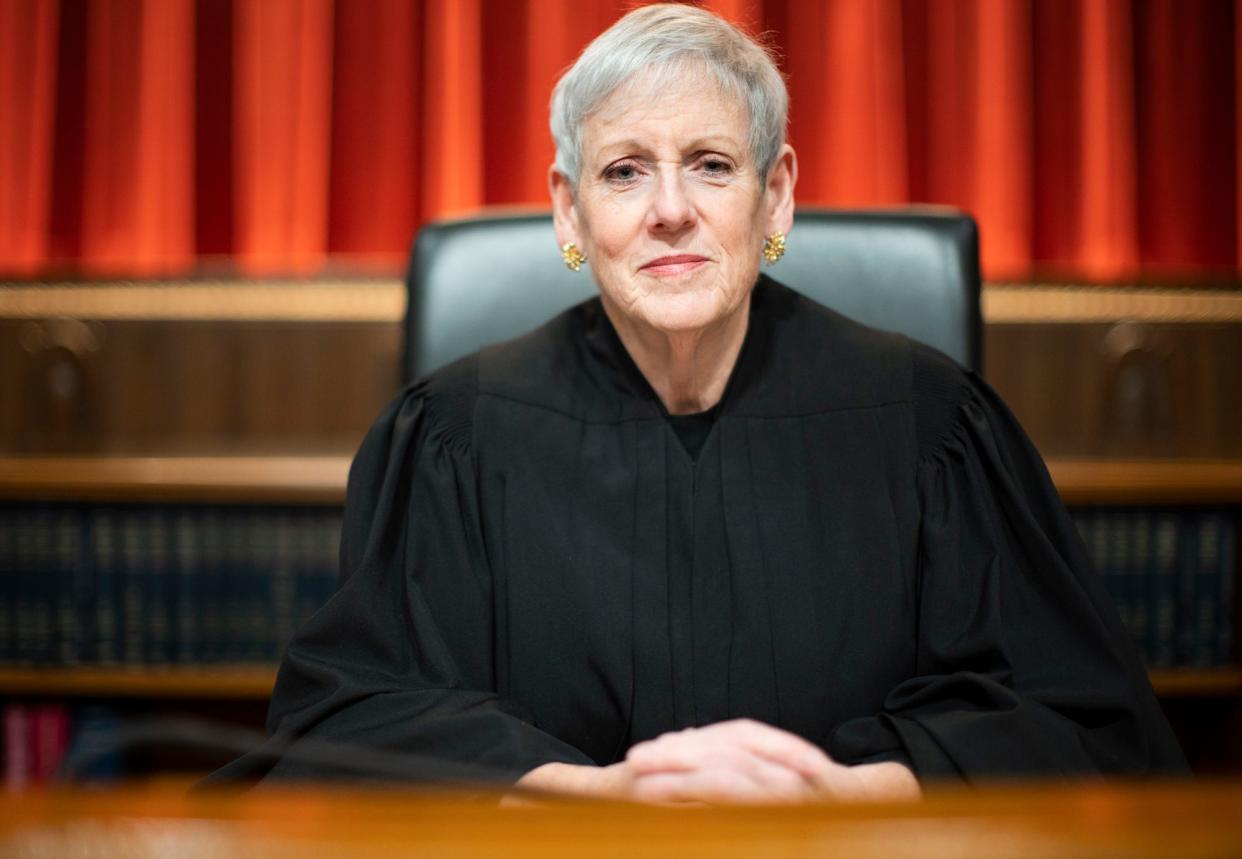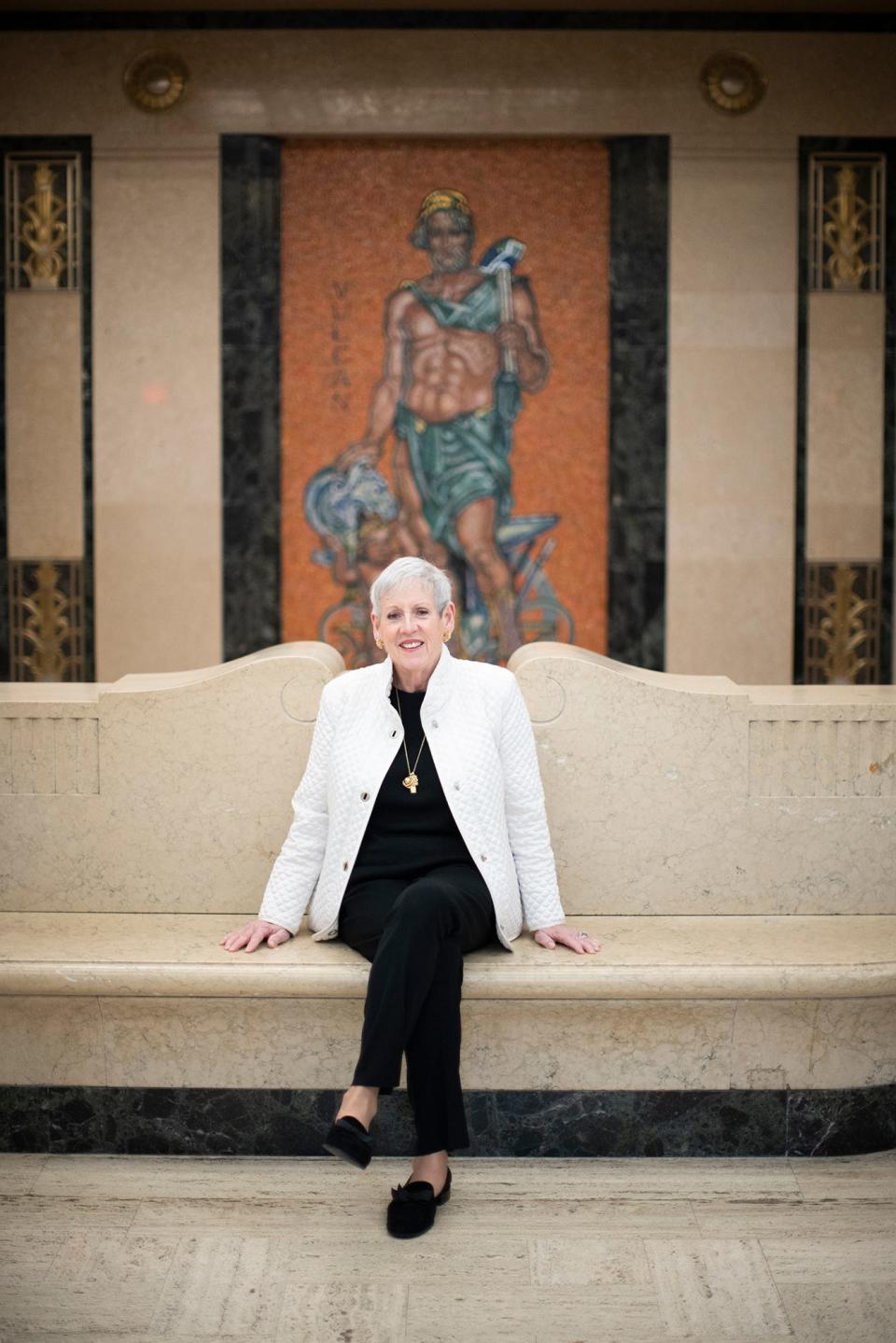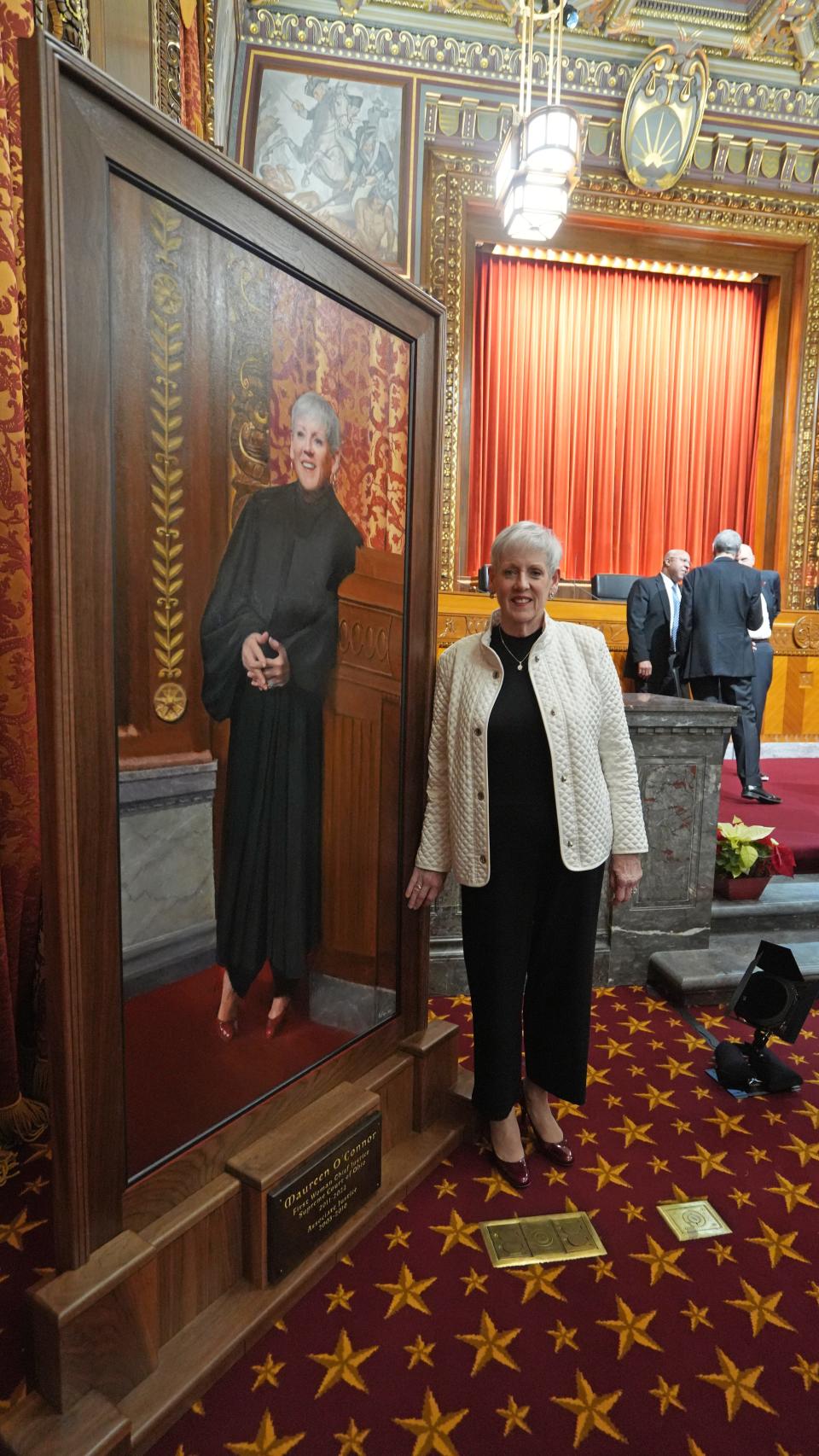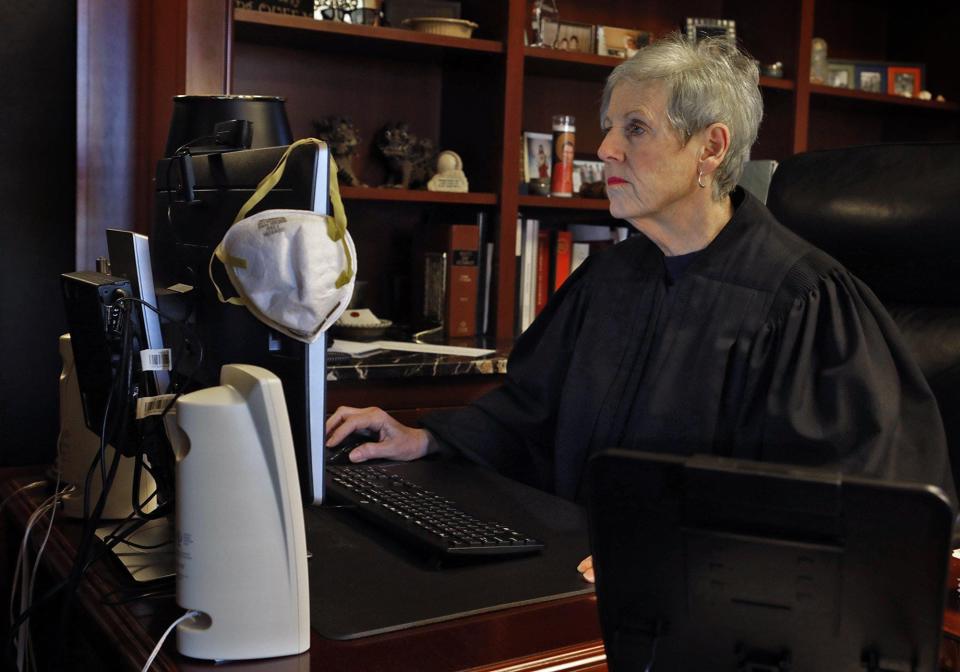‘If they can do it, I can do it’: Meet USA TODAY’s Women of the Year honoree from Ohio

Maureen O'Connor is one of USA TODAY’s Women of the Year, a recognition of women who have made a significant impact in their communities and across the country. The program launched in 2022 as a continuation of Women of the Century, which commemorated the 100th anniversary of women gaining the right to vote. Meet this year’s honorees at womenoftheyear.usatoday.com.
Maureen O'Connor, who served in statewide elected office longer than any woman in Ohio history, grew up in an Irish-Catholic family steeped in hard work, service to others and personal responsibility.
Her grandmother, Eleanora Murphy Neff, set the sterling example. Neff joined the workforce during the Great Depression and World War II, working as a social worker. On Saturday mornings, Neff pressed O'Connor and her siblings into service.
"I remember cleaning a house, there was going to be a halfway house for women that were exiting prison. I wasn't enamored with spending a Saturday − I think maybe more than one Saturday, if I recall," said O'Connor, who grew up near Cleveland as one of eight children. "We had to clean it because these women were going to come here. ... I never would have said to my grandmother, 'No, I don't want to do that.' I mean, I didn't even say that privately to my mother."
The no-complaining-just-get-the-work-done lesson served O'Connor well in her professional career.
O’Connor graduated law school at Cleveland State University. She served as a probate court magistrate and common pleas court judge in Summit County. When a vacancy occurred, she decided county prosecutor was too important a job to leave to just anybody.
After her two sons finished high school, O'Connor agreed to run on the statewide ticket with Republican Bob Taft in 1998. She served as lieutenant governor and then won election to the Ohio Supreme Court in 2002. O'Connor became the first woman to serve as chief justice in 2011. On the court, she heard more than 2,500 oral arguments and wrote 421 majority opinions and 77 dissents.
In her final years in public service, O'Connor became persona non grata within her own political party. The Ohio Republican Party removed her photo from the headquarters wall and Republican state lawmakers threatened impeachment. Her sins? O'Connor sided with three Democrats on the court in rejecting Republican-drawn legislative and congressional political maps after the 2020 census.
O'Connor brushed off the criticism, saying publicly after the 2022 midterm elections: "I've been called worse by better. And I don't care."
This conversation has been edited for length and clarity.

Do you have a mantra or guiding principle in your professional life?
If they can do it, I can do it.
I was a magistrate in probate court and that gave me a perspective from behind the bench. And I thought to myself, I'm a magistrate now, there's no reason why I can't be a judge. So I worked hard, did what was necessary and became a common pleas court judge. Again, if they can do it, I can do it. You observe, you learn and you realize that that's something you might want to do. Then you figure out how you're going to do it. And you do it.
Who do you look up to in your life?
I look up to a lot of women who have quietly advanced the cause. And I think about my grandmother, born in 1901. She was a very progressive woman, very progressive. She was a Democrat, my grandfather was a Republican. But she believed in equality. She believed in helping people, she was a social worker and she was abundantly Catholic. That's the way I was raised.
So that's the overarching thing in my life. Both my mother and grandmother, they are such a great example for hard work, advancing the cause of women and believing in all their granddaughters and daughters. I'm thankful. But I'm thankful for all the women who came before them as well.
What is your proudest professional moment?
You'd expect me to say when I was elected chief justice or when I got on the court. My proudest moment, professionally, was when I didn't have opposition in 2016 for this job because that meant to me that I had been doing things pretty well. I had support from both sides of the aisle, the judiciary was behind me.
And it helped that previous election I had won all 88 counties and in the election before that I had won all 88 counties. So, chances are I'd win all 88 counties. There are a lot of reasons the Democrats didn't put somebody up against me. But what I heard was: You're doing a good job.
Behind the scenes: Ohio Supreme Court justices squabble over where to hang Maureen O'Connor portrait
Not going quietly: As she exits, Ohio Chief Justice Maureen O'Connor has plenty to say

How do you overcome adversity?
I've been very lucky in my life. I have good health. I've had great jobs in my career, two healthy sons, abundant grandchildren who are all doing very well.
I've never had a personal tragedy. But that doesn't mean that I don't appreciate the devastation that people have when they do have a tragedy in their life.
What is your definition of courage?
The standard definition − you do what's right in spite of the obstacles. This last year, that word has been bandied about frequently with my name. I get letters from people thanking me for my courage. And I think to myself, I don't feel courageous in doing the right thing. Under the redistricting map, I don't feel like I was exerting courage.
People think, well, you're a Republican and you sided with three Democrats, that must have taken courage. But I've never been that kind of a Republican. I've never been that kind of a party person.
Let's put it this way, the bridges I burned, I never would have used them anyway to get across.

What advice would you give your younger self or to young people today?
Try on things to see if they work out. If they don't, take it off, move on. Figure out what you want to do. You can figure that out by figuring out what you don't want to do. Don't get yourself locked into a position because you think you have to.
I went through three majors when I was in undergrad. I was going to be a teacher. After college, I worked on a master's degree in teaching and got to student teaching and realized that I didn't like kids well enough to do that for a career. I really give a lot of credit to the people who are teachers. But I said teaching is not for me and thousands of children have benefited from that decision.
The other thing is don't think your career and your life are going to go from point A to point Z. If you go through life with blinders on, you're going to miss life.
2022 Women of the Year: Two years after COVID-19 pandemic began, Dr. Amy Acton reflects on her place in history
Women of the Century: Oscar winner Halle Berry and author Toni Morrison among Ohio’s most inspiring women
This article originally appeared on The Columbus Dispatch: USA TODAY honors former Ohio Chief Justice Maureen O'Connor

